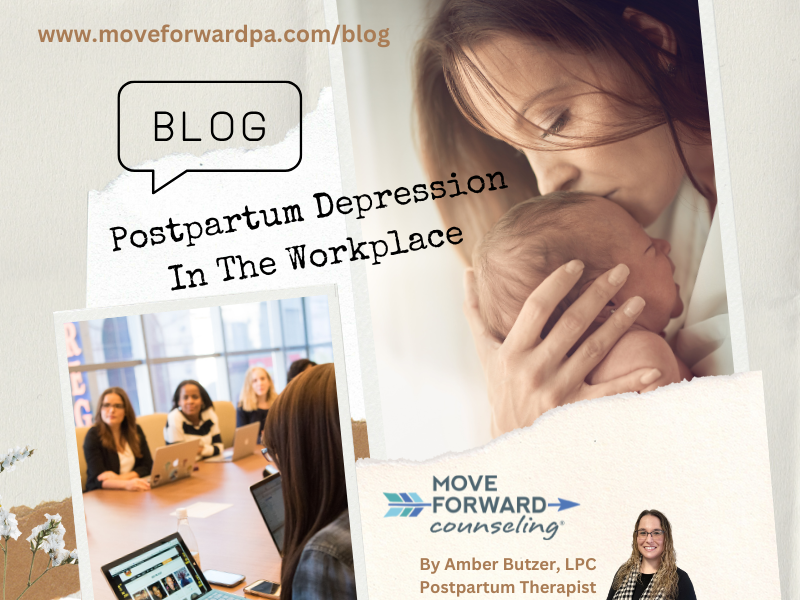
Lancaster Office
825 Eden RoadLancaster, PA 17601
You aren’t sleeping anymore. Doing everyday activities feels scary or dangerous. Small changes in routine put you on edge. You can’t stop thinking about what happened to you. Could this be PTSD? Therapy for Trauma & PTSD in Pennsylvania might be the answer.
There is a saying that “trauma is in the eye of the beholder.” While two people may have experienced the same event, one may be experiencing trauma symptoms while the other may not. We don’t know why, but we know trauma symptoms can interfere with everyday functioning. People with trauma experience symptoms of anxiety, nightmares, flashbacks, depression, and difficulty concentrating. It can be challenging to do daily activities like work, sleep, or have healthy relationships with loved ones.

Your trauma may have happened recently, or it could have happened a long time ago. Trauma symptoms can result from something that happened once, like a car accident or sexual assault. Or, it could be a result of events over a more extended period, such as physical abuse in childhood that lasted for years. Each client is unique in their trauma experience and symptoms.
Our therapists are specially trained in treating trauma and have helped many clients reduce their symptoms. You don’t have to stay “stuck” in the past. You can learn how to cope with the symptoms. Your therapist can help you process your trauma so it doesn’t continue to affect your life negatively.
Visit the Psychology Today PTSD test.
While addressing the trauma in therapy can be challenging, it is possible to start to see positive changes within a few months. And your therapist will be with you every step of the way. While you may not completely forget about the trauma you have experienced, it is possible to reduce your symptoms and recover from PTSD.
Trauma-Focused Cognitive Behavioral Therapy (TF-CBT) is an evidence-based treatment designed to help children, adolescents, and their parents overcome the impact of traumatic events. Examples of therapy for trauma & PTSD in Pennsylvania could include but are not limited to:
TF-CBT helps reduce distressing feelings and symptoms, ultimately reinstating a sense of control and empowerment. The therapist, client, and parent will work collaboratively to learn about their trauma. Then, develop a toolbox of coping skills to manage traumatic stress reactions, learn how to reframe past events, and challenge distressing thoughts and beliefs in a more positive, helpful way. Next, the teen and therapist will process the trauma creatively, using approaches that appeal to the client’s strengths. And finally, integrate the trauma positively so that the teen can feel a renewed sense of empowerment and a hopeful future.
With therapy for teens in Pennsylvania, we can help treat your child’s trauma together. TF-CBT is a structured, short-term treatment lasting roughly 12-25 sessions. This includes individual sessions for the child or teen, individual sessions for the parents, and conjoint sessions between the parent and child or adolescent.
Maybe you think it will go away if you keep ignoring the trauma. Or, you have come to accept that the anxiety and sleepless nights are just part of your life. Maybe, you are afraid to address the trauma because it feels like it would worsen it. These are all common thoughts that people with trauma have.
Symptoms of PTSD and trauma do not typically get better on their own. While going to therapy for trauma may not be enjoyable, it will help you to feel better and get “unstuck” from the symptoms you are having now. Our therapists have specialized training in trauma and have helped many clients improve functioning in their everyday life.
You don’t have to live with the negative, intrusive thoughts, anxiety, and irritability of PTSD. Counseling can help you reduce these symptoms and live a life not overshadowed by trauma. Our mental health private practice offers in-person therapy at all our therapy offices. Many of our caring therapists specialize in trauma. We can help you wherever you are in the state with online therapy in Pennsylvania. To start your trauma counseling journey, reach out to us today.

825 Eden RoadLancaster, PA 17601

226 N Arch StreetLancaster, PA 17603

445 Mountville Drive,
Lebanon, PA 17046

100 Keystone Ave, Suite 1,
Emmaus, PA 18049

935 East Chocolate Ave.Hershey, PA 17033

201 S. Craig St, Suite 1M
Pittsburgh, PA 15213

3091 Enterprise Drive, Bld. D, Suite 202, State College, PA 16801

1410 E Market StreetYork, PA 17403

Across Pennsylvania

Working Mom Guilt Written by Amber Butzer, LPC and Move Forward Counseling Therapist A Major Life Transition Having a child is arguably one of the most

Postpartum Depression in the Workplace Written by Amber Butzer, LPC and MFC Therapist Picture this… You wipe away tears as you gather your abundance of

Harness Your Power: Using Your Circle of Influence Written by Veronica Pilon, LCSW and MFC Therapist In a world that often feels overwhelming, getting caught

























Therapy is available online across Pennsylvania, with in-person therapy options at the Lancaster, Lancaster Downtown, Lebanon, Pittsburgh, State College, Hershey, Lehigh Valley and York locations.
825 Eden Road, Lancaster, PA 17601
226 N Arch Street 2nd Floor, Lancaster, PA 17603
445 Mountville Drive, Lebanon, PA 17046
100 Keystone Ave, Suite 1, Emmaus, PA 18049
935 E. Chocolate Ave., Hershey, PA 17033
201 S. Craig St, Suite 1M, Pittsburgh, PA 15213
3091 Enterprise Drive, Bldg. D, Suite 202, State College, PA 16801
3091 Enterprise Drive, Bldg. D, Suite 202,
State College, PA 16801
1410 E Market Street, York, PA 17403
Across Pennsylvania
Monday 8:00 a.m. till 6:30 p.m.
The office is closed on major holidays.
Fax No: 717-459-6253
Best Workplace 4 Years in a Row

To get our monthly newsletter with current openings and new office information sign up here.